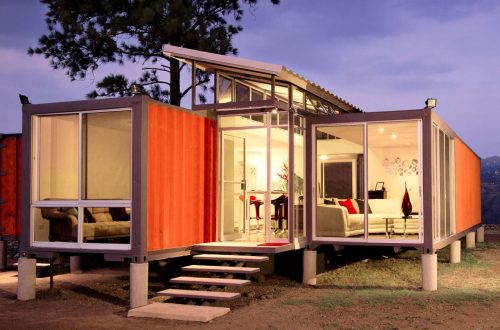
Steps For Saving On Your Own Power Bills
Table of Contents
1. Make sure your home is properly insulated.
2. Use a solar energy system.
3. Try to turn off lights when you’re not using them.
4. Use a battery-operated air conditioner.
5. Use a programmable thermostat.
There are a few things you can do to save on your own power bills, including using a solar panel, using an energy-efficient lightbulb, and using an energy conservation program.
1. Understand your baseline power usage. This will help you to identify where you can save power.
2. Look for ways to reduce your overall power usage. This could include turning off electronics when not in use, using energy-saving lights and appliances, and using air conditioning and heating when necessary.
3. Monitor your power usage and make adjustments as necessary. This could include adjusting your thermostat, turning off unnecessary appliances, or using a power management system.
4. Participate in energy conservation programs. These can be offered by your utility or your municipality.
5. Educate yourself and your family about energy conservation. This can include learning about energy-saving technologies, participating in energy-saving
How To Save On Your Power Bill.
There are a few simple things you can do to save on your power bill. First, be sure to turn off electronics when you’re not using them. This can save you a lot of power. Also, make sure your appliances are properly switched off when they’re not in use. This will save even more power. Finally, consider using energy-efficient appliances. These appliances use less power and can help you save money on your overall power bill.
Tips For Conserving Energy In Your Home.
1. Start by assessing your home’s energy usage. Are all of the appliances in use energy hogs? Are there any areas of your home that are consistently using more energy than others?
2. If you can, try to make small changes to your home’s energy usage habits. For example, try to turn off appliances when you’re not using them, or make sure that all of your appliances are properly calibrated.
3. Consider installing energy-saving features in your home. For example, consider installing energy-saving light bulbs, insulation, or windows.
4. Finally, be sure to report any energy-related issues to your utility company. This will help them track and improve your home’s energy usage.
Tips For Saving On Your Energy Usage.
1. Be mindful of your energy usage. Keep an eye on your energy bills and make adjustments where necessary.
2. Educate yourself about energy usage. Learn about the different types of energy and how they are used.
3. Use energy-efficient devices. Choose devices and appliances that use minimal energy.
4. Monitor your energy usage. Track your energy usage over time to make adjustments as needed.
5. Conserve energy when possible. Try to reduce your energy consumption by using energy-efficient techniques and devices.
Ways To Reduce Your Carbon Footprint.
1. Think before you act. How can you reduce the amount of energy you use?
2. Drive less. Do you have the option to take public transportation, carpool, or ride an electric bike?
3. Eat organically. Buying local, organic produce can reduce your carbon footprint by avoiding transportation and fertilizer use.
4. Recycle. Not only does recycling reduce landfill waste, but it can also help reduce the amount of energy required to produce new materials.
5. Embrace technology. Technology can help reduce your carbon footprint by increasing efficiency and reducing the amount of energy used.
6. Educate yourself and others. Share information about your carbon footprint and ways to reduce it through social media, email, or word-of-mouth.
Ways To Reduce Your Energy Consumption.
There are a few ways to reduce your energy consumption.
First, you can try to use less energy when you’re not using it. For example, if your computer is off, try to turn it off instead of just shutting it down.
Second, you can try to use energy-efficient products. For example, you can try to use a light bulb that uses less energy or a fan that uses less energy.
Third, you can try to use energy when you need it. For example, you can try to use energy when you’re heating up your house or when you’re cooking.
Fourth, you can try to use energy when you can use it affordably. For example, you can try to use energy when you’re not using the most energy-intensive products.
Tips For Reducing Your Power Bill.
1. Manage your appliances. Turn off appliances when you’re not using them, and unplug them when you’re done.
2. Keep your home clean. Don’t leave appliances running when you’re not using them, and keep your home clean to help save on your power bill.
3. Use less power. Try to use your appliances less often and turn them off when you’re not using them. If you can’t do that, use energy-saving features on your appliances.
4. Get a smart meter. A smart meter will help you understand your energy use and find ways to save.
5. Talk to your utility company. Ask how you can reduce your power bill and how you can get a smart meter. If you are in a position to save power, do so. There are a few simple steps you can take to save power and money on your own power bills. workshops, and reading energy conservation articles.
6. Stay informed about energy conservation programs and policies. This will help you to make informed decisions about energy usage.
There are more ambitious steps for saving, however the costs can be considerable. Children energy audit will help you make a decision which are worthwhile taking based, partly, about how long you intend to keep your home. Here are some examples of improvements that will save energy and may enhance the value of your home:
Add insulation. When the insulation in your attic has sunk over the years, it might be a good time to add more. Consult a power expert if you can start to see the joists in your attic. The amount of insulation needed varies and differs in the way its installed, so a home analysis may be beneficial. Also, before adding insulation, check for leaks in attic ductwork. These can truly add greatly to your vitality or fuel charges and are best serviced before putting in insulation.
Plant trees. Several oaks or even hedges on the sunny aspect of the house will create color and lower inside temps.
Energy-efficient lightbulbs. Lamps accounts for about 5% of home energy use. Turning from old-fashioned incandescent light bulbs to more efficient CFLs or LEDs can reduce that. Not only do LEDS decrease the amount of vitality needed to make light, they throw off much less heat than incandescent, which is significant through the warmer calendar months when youre cooling your home.
New roofing. If youre building a new house or swapping a roof on your present home, consider putting in an awesome roof. Cool roofs use materials that reveal more natural light and absorb less heating than standard roofs. Local climate is one factor is deciding whether a cool roof makes financial sense.
Buy an energy-efficient hot water heater. Typically, percent of home utility spending should go toward heating normal water, but newer heaters can reduce the cost. Choose a model with Energy Superstar seal, and compare the believed annual energy utilization on the labels attached to the tanks. Also look at a solar hot water heater if you are in an area with abundant sunlight or a tank-less heater, which only warms water as its used. Energy experts projected that tank-less gas heating units yield a percent energy savings over conventional container heating units. Another helpful strategy: dont warmth the water past degrees Fahrenheit.
Solar powered energy. Though using solar power panels to generate home electricity continues to be expensive and may take years to repay, the price tag on rooftop systems is decreasing. Some state governments offer bonuses for these systems. The cost of the technology continues to drop as demand increases.
Replace glass windows. When you have single-pane glass windows, they can be a major drain on your energy bills. Go for double-pane replacements. Look for windows with low solar-gain coefficients and low U factors, which offer better insulation. Also look for glass windows with reflective coatings that will reduce heating and ultraviolet rays that may damage furnishings. Home windows are costly, so that it might take a long time to totally recoup your investment, but new windows can improve a homes appearance and increase its market value.
Check efficiency ratings of new appliances. Search for the Energy Legend seal on refrigerators, dishwashers and laundry equipment. Gadgets eat up about percent of the households energy costs, so getting ones that sip alternatively than gulp energy is important. Remember, major appliances can last a long time, so an increased upfront cost often means savings over time.
Same goes for office equipment. Computer systems, copiers, printers and monitors can consume energy, so look for your with Energy Star labels. These devices typically go into rest method when theyre not used and can use percent less energy than more mature models. If you are from the workplace for some time, consider turning them off, since even sleeping electronics use energy.
Update all equipment. Use timers, electric power strips, motion-detector switches and WiFi-equipped products. Gadgets and switches that turn off lights and appliances you should definitely in use can save electricity. So can the new generation of Smart Kitchen appliances that allow you to remotely control from thermostats to refrigerator adjustments when youre away.
Yet another suggestion: In the event that you simply cant afford your power bills, look into government assistance programs. One program, the national Low Income Home Energy Assistance Program (LIHEAP) offers resources and help. A state authorities, local utility providers or an area cathedral also may have financial assistance programs.
In case you have other arrears problems, consider the positive budget impact of cutting your month to month debt payments via a debts management plan arranged via a credit counseling company. Energy personal savings are a balancing function, and every budget differs.





